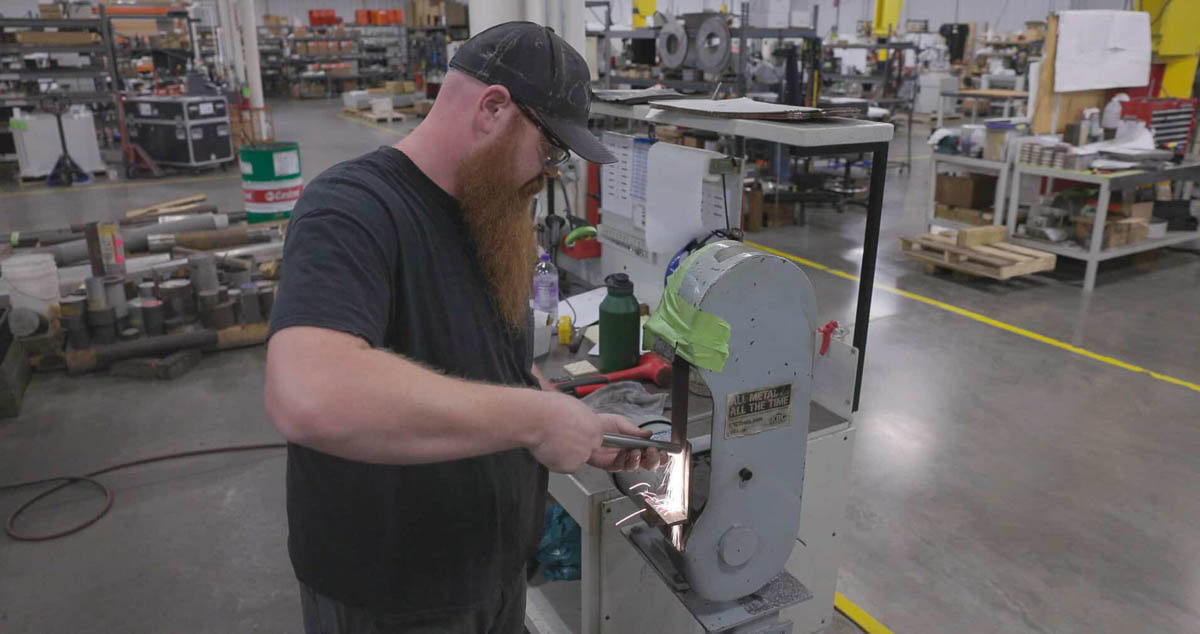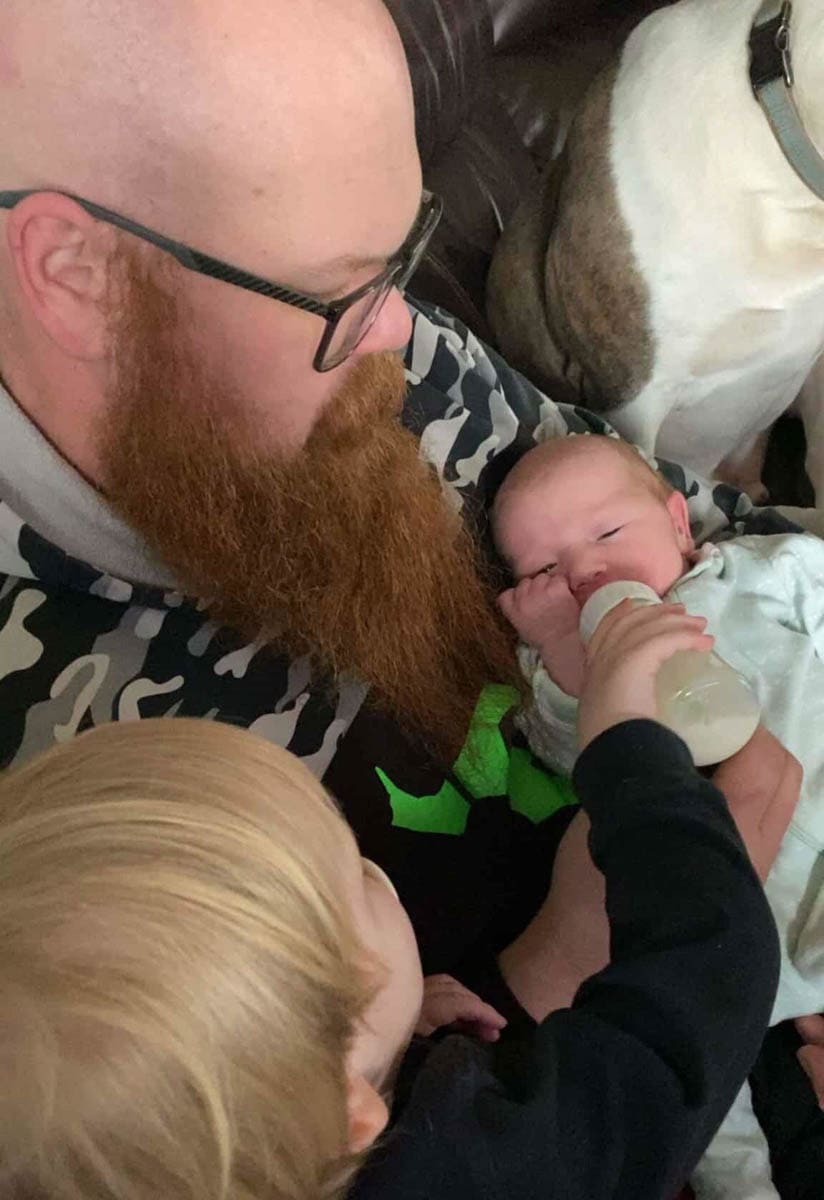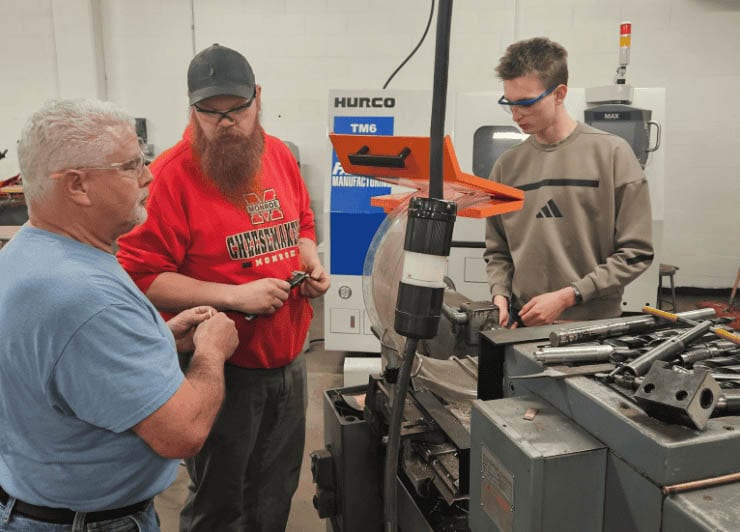
All Over the Shop Floor: A Machinist’s Take on Life at DCM Tech
If you ask a machinist at DCM Tech to describe a typical day, don’t expect a neat schedule or a direct list of tasks. For one machinist in particular, the answer is simple: “My day doesn’t really have much structure. It’s moment to moment—whatever’s needed is what I need to go do.”
From grinding and honing, to running CNC mills and manual lathes, his work covers just about every area of the shop floor. It’s that variety that makes the job interesting. “It’s really difficult for me to say I have a main machine. I’m all over the place. Some days I’m grinding, today I’m back at the hone, other days it’s the CNC mills.”

Skills You Can Build On
So, what kind of skills does it take to do Jim’s job? “Anyone with general machining skills would be able to do this. Grinding just takes a bit more experience and diligence.” While the position itself isn’t overly technical at first glance, it’s everything else around the role that makes those skills essential.
From CMMs to mills and lathes, the equipment is familiar to just about anyone in the industry. But having the flexibility, and the trust, to step into different roles and operate a range of machines as needed? That’s a level of versatility not every shop promotes or permits.
From Logging to Machining
His entry into machining wasn’t exactly planned. “I was a logger at the time, just laying in bed watching YouTube. I stumbled across a video of a CNC machine making chips, and I thought, ‘Wow, that’s fascinating. I could watch that all day.’”
That rabbit hole led him to realize that machining was an actual career path—and one available at a technical school he had previously attended. “I went back, finished everything, and got a degree in collision repair and machining. I mainly stuck with it because I wanted to be a gunsmith.”
First in the Build Line
His entry into machining wasn’t exactly planned. “I was a logger at the time, just laying in bed watching YouTube. I stumbled across a video of a CNC machine making chips, and I thought, ‘Wow, that’s fascinating. I could watch that all day.’”
That rabbit hole led him to realize that machining was an actual career path—and one available at a technical school he had previously attended. “I went back, finished everything, and got a degree in collision repair and machining. I mainly stuck with it because I wanted to be a gunsmith.”
A Culture That’s Different—In a Good Way
What sets DCM Tech apart from other shops? The answer is quick: “DCM wants me to be as big a part of my family as I can be. That’s not something I’m used to. Most places are like, ‘You’re here to work. If your family needs something, maybe we’ll talk.’ But here, if your family needs something, you go take care of it.”
And when things go wrong? “Nobody makes me feel inferior if I make a mistake. They just make sure I’m alright, then we fix the issue.”
That kind of support builds a workplace culture that’s both laid back and collaborative. “We’re more like a family here. I feel like I belong at DCM more than I ever have at other places.”
Space to Grow
Because of that supportive environment, he’s taken on tasks he might not have before—like learning to run the grinder or stepping up in the welding department. “I’m going to try and fill Dave Puetz’s boots in welding, which is a daunting task. Welding is serious stuff. But the company’s genuinely supportive of my learning.”

Lessons from the Floor
When asked what advice he’d give to someone starting in machining, he doesn’t hesitate: “Invest in Tylenol.” Then he gets serious. “Make sure your math skills are in shape, and don’t settle for less than you can do. Nothing’s good enough until it is. Once you start flying under the guise of complacency, you’re not going to be a very good machinist.”
The biggest challenge in the role? Frustration. “It’s easy to get stuck on one thing and get frustrated. I just take a lap around the building, walk it off.”
That self-awareness, paired with a flexible team, keeps things moving. And every now and then, the payoff is something special. “I got to use my new skills on the grinder to make a vacuum fixture for a ceramic part with the help of Red. It felt like what we were doing really mattered. The customer didn’t have a good method, and we solved that.”

Winona Roots, Real Impact
Outside of work, he enjoys everything the Winona area has to offer—especially the scenery. “After a really wet snow, when it’s all hung into the leafless trees on the side of the bluff, I could pull over on the road and look at it for an hour. It’s just so beautiful.”
He’s also given back to the community by helping teach machining at Winona Senior High School. “The teacher needed help keeping track of the kids—making sure everyone was safe and learning. We did that for a few months. It was awesome and I learned a lot from it too.”
Spare time is hard to come by between dogs and kids, but one favorite activity is simply watching the two interact. “I don’t have a lot of hobbies, but watching my dogs play with the kids? That’s up there.”
